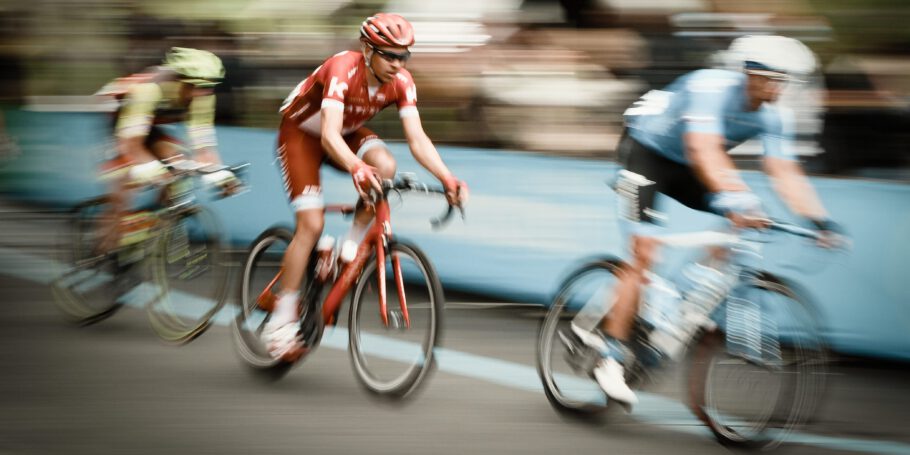Winnings in sports competition and PIT tax return
Areas of interests / 21 September 2018

Sports competitions evoke great emotions. Winnings – great pride, satisfaction and … often involve significant amounts of money. And we know that the latter is inevitably of interest to the fiscal office. In this article, I will present briefly how a Polish sportsman should settle accounts with a tax office in connection with the obtainment of a prize in sports competitions.
Taxation of a prize awarded in Poland
An important element of sports competition is rivalry between participants, and on the formal side – the rules of selecting the winners. The received prize for winning a sports competition is closely related with the effect of direct rivalry between players, which is relevant from the point of view of tax consequences in Poland. That is because it is determined that the prize for winning a sports competition is taxed differently than income for practising sports as such.
In the event that a sportsperson receives a prize not for his/her mere participation in the competition, but for winning it as a result of beating his/her rivals (other players), such prize is subject to a flat tax at the rate of 10%. Such tax is most commonly charged by the organizers of the competition (as the payer), without taking into account the costs of obtaining revenues. Meanwhile, in the event of obtainment of a prize in kind (non-cash), the winner him/herself should pay the organizer the due amount of flat-rate tax before he/she receives the prize. Usual practice in such event is that the organizer “grosses-up” the prize by adding to it a cash prize to cover the tax.
In view of the fact that it is the organizer who is responsible for proper settlement of accounts with the tax office, the sportsperson does not need to submit any other tax returns in this regard.
… and abroad
According to international agreements on avoidance of double taxation, it is a rule that income of sportspersons, including prizes for winning sports competition, is subject to taxation both in the country of performance of sports activity and in the country of tax residence of the sportsperson. And a relevant method of avoiding double taxation is applied, which will be discussed below.
A situation is different as regards the obtainment of income from sports activity which is fully or partially paid for from public funds of one or both countries or when a competition is held as part of cultural exchange between such countries. Then such income may be taxed only in the country of tax residence of the sportsperson.
The situation is still different if income is obtained in the country with which Poland has not concluded an international agreement. In such case, income is taxed in the country of tax residence of the sportsperson. However, there is no obstacle for it to be subject to taxation, to the full value, also in the country in which the sports activity is performed.
In the situation when, according to an international agreement, the sportsman’s prize is subject to taxation only in Poland, then we will only have the flat-rate, 10% tax. The only difference is that the duty to pay the tax is not a duty of the foreign organizer of the competition, but of the winner himself who must additionally disclose the prize in his/her annual tax return.
In other cases, the prize is subject to taxation in the country of performance of the sports activity. At the same time, according to the Polish tax provisions, a sportsperson who is a Polish tax resident, is subject to taxation in Poland with regard to all of his income, regardless of the source of such income. And this also means the income obtained abroad.
Fortunately, international agreements concluded by Poland regarding avoidance of double taxation prevent this “injustice”. The first of the methods of prevention of double taxation is the so-called method of exemption with progression. According to this method, profit deriving from the participation in sports events (including prizes awarded for winning a competition) organized abroad is exempted from taxation in Poland. At the same time, it has an influence on an increase of the percentage rate used to calculate tax due on income obtained in Poland. Such profit is taxed according to general rules (according to the tax scale), and therefore, despite all, it has to be disclosed in the Polish tax return. In every case of application of the method of exemption with progression, the increased percentage rate will not, however, be higher than 32%. In the case of other forms of taxation of income in Poland (e.g. linear tax or flat-rate tax) or in the event that no income is achieved in Poland, there is no need at all to disclose in Polish tax returns the income achieved from sports activity performed abroad.
The second method is the so-called method of proportional accounting, commonly referred to as a tax credit. It application does not exempt income achieved abroad from taxation in Poland. Therefore, a sportsperson must take such income into account in the Polish tax return and – in the case that it constitutes a prize for winning a competition – must pay a flat-rate tax on it, to the value if 10%. At the same time, it is possible to reduce the tax due in Poland by the amount if tax paid in the country in which the sports competition took place (and from which the prize for winning the competition originates). Therefore, in the case that in the country of performance of sports activity a tax was paid, then the tax due in Poland is reduced by the value of the tax paid abroad. If the amount of foreign tax equals or exceeds the amount of the tax due in Poland, then the sportsperson will not pay the tax in Poland on the received prize.
Summary
Practising sports may definitely constitute a lucrative course of income. Competition and rivalry are, however, connected with significant stress and great pressure from coaches and fans. That is why, obtaining prizes or other income from practising sports, one should not forget that proper settlements have to be done with the Polish tax office. This will save the sportsperson stress connected with any irregularities disclosed during tax control and will allow him to concentrate on preparation for future competitions.
The author of the article is Tomasz Piejak, trainee attorney-at-law at GWW. The article was written in co-operation with Agnieszka Szymańczyk, a tax adviser at GWW.
Author
Tomasz Piejak
adwokat
Od paru ładnych lat zajmuję się podatkami, sprawami rodzinnymi i spadkowymi, a także tworzeniem, bieżącą obsługą i restrukturyzacją podmiotów prawnych. Realizację we wszystkich tyc...
Powiązane wpisy
COVID-19 and the construction industry – force majeure in FIDIC contracts
COVID-19 and the construction industry – force majeure in FIDIC contracts
Tax credit for donors – zero VAT rate for entities providing personal protective equipment
Tax credit for donors – zero VAT rate for entities providing personal protective equipmentAlcohol for disinfection as the tax-deductible cost
Alcohol for disinfection as the tax-deductible costTax residency during lockdown
Tax residency during lockdownObawiasz się,
że ominą Cię
najważniejsze zmiany
w prawie?




